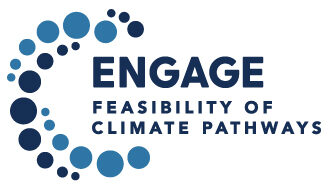Balancing technology and governance are key to achieving climate goals
9th August 2024
Despite advancements in clean energy, global CO2 emissions continue to rise. IIASA researchers contributed to a new international study that underscores the importance of integrating technological advancements with robust institutional capacities to formulate effective climate policies.
The Paris Agreement’s goal to limit global warming to 1.5°C demands rapid reductions in CO2 emissions and heightened attention to non-CO2 greenhouse gases. Despite advancements in clean energy, global CO2 emissions have risen steadily over the past three years following the initial decline during the COVID-19 pandemic in 2020.
The study published in Nature Climate Change was led by the Center for Global Sustainability (CGS) at the University of Maryland, in partnership with the IIASA-led, Exploring National and Global Actions to reduce Greenhouse gas Emissions (ENGAGE) project – a global consortium of international and multidisciplinary leading research groups.
“These new insights highlight the critical challenges in meeting the Paris Agreement’s long-term goals given recent global climate-damaging emissions trends,” notes Bas van Ruijven, study coauthor and coordinator of the ENGAGE project.
The authors set out to co-produce knowledge for designing cost-effective, technologically sound, socially and politically feasible pathways that can meet the objectives of the Paris Agreement. Using eight state-of-the-art multi-regional and process-based global integrated assessment models (IAMs), along with a set of 20 different feasibility scenarios in their analysis, the team found that the institutional dimension (i.e., accounting for limits of countries to enable effective climate regulation) has the largest influence on feasible peak temperature.
To read more, click here.

